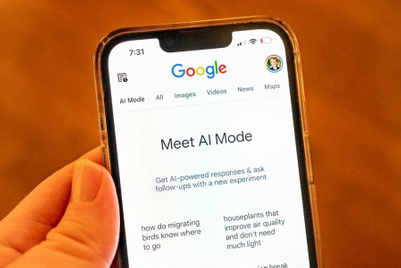
Google has hit back at the IAB Tech Lab’s recently published Privacy Sandbox Fit Gap Analysis for Digital Advertising, claiming that the report contains “many misunderstandings and inaccuracies."
The IAB’s report called into question the efficacy of Chrome’s Privacy Sandbox and subsequent third-party cookie deprecation, highlighting a lack of preparedness among the industry.
“It's not viable to recreate every marketing tactic as it exists today”
In a statement, Google said while it appreciates the IAB Tech Lab’s mission is to educate its members of the impact of new technologies on the digital ecosystem, “the report appears to ignore the broader objective of Privacy Sandbox to enhance user privacy while supporting effective digital advertising."
Google said: “The Privacy Sandbox APIs provide building blocks that support business goals while preserving privacy for people. They are not designed to offer 1:1 replacements for third-party cookies or cross-site identifiers."
“In order to deliver meaningful improvements to user privacy, it's not viable to recreate every marketing tactic as it exists today. But it is possible to provide solutions that address business objectives by adapting existing approaches and, in some cases, inventing new ones. While this change takes investment, effort, and collaboration, we believe it is both necessary and achievable.”
In terms of specifically where Google believes the IAB Tech Lab’s report fell short, the search giant pooled its clarifications into four main sections:
– Corrections to assumptions or use case gaps that are supported by the Privacy Sandbox APIs
– Use cases that are currently not supported by third-party cookies and are thus out of scope
– Feedback and/or proposals that could potentially recreate cross-site tracking and go against privacy-preserving goals
– Areas where the solution should be determined by the adtech provider (not the browser or platform) or where the ad tech provider needs to adapt new tactics building on top of Privacy Sandbox
Google added that it welcomes further feedback from the IAB Tech Lab and broader ecosystem on possible Privacy Sandbox improvements. In terms of Chrome’s cookie phase-out, Google continues to “move forward with our plans to phase out third-party cookies in H2 2024, subject to addressing any remaining competition concerns from the UK Competition and Markets Authority."
Google’s full response to the report is available here.



.jpg&h=334&w=500&q=100&v=20250320&c=1)


.png&h=334&w=500&q=100&v=20250320&c=1)



.png&h=334&w=500&q=100&v=20250320&c=1)

.png&h=334&w=500&q=100&v=20250320&c=1)







.png&h=268&w=401&q=100&v=20250320&c=1)